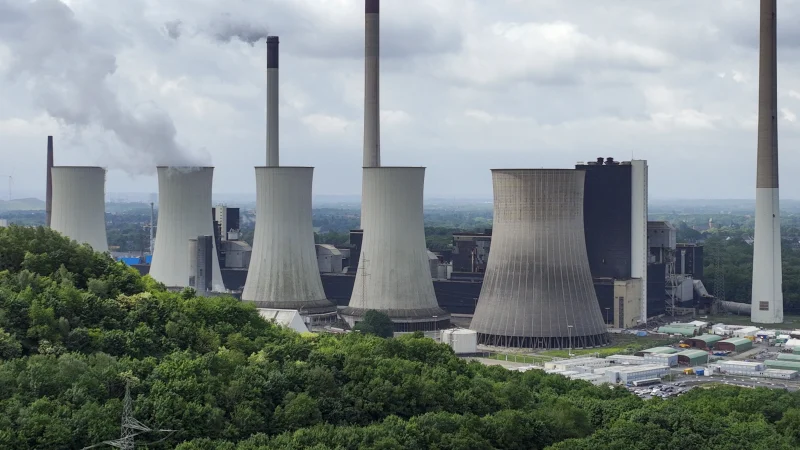Latest reports suggest that Labour is likely to have to approve new gas-fired power stations in its attempt to decarbonise the UK’s electricity systems by 2030, in what would be a tricky decision for the new government.
According to a report from the National Engineering Policy Centre, Keeping the lights on for the rest of the decade, and beyond, will require some additional baseload power, and new nuclear power stations will not be built in time.
All the UK’s existing gas-fired power stations are expected to be kept going as long as possible but it is probable that more will be needed. Wind and solar generation are set for large increases but the UK’s nuclear reactors are ageing and coal has almost been phased out.
Nilay Shah, who is a professor of process systems engineering at Imperial College London and a co-author of the report, said: “There is a reasonable chance that we will need new gas-fired power stations.”
However he called for them to be “genuinely” ready for the attachment of carbon capture and storage (CCS) technology, which could be achieved by locating them near potential underground carbon storage sites. He said the number needed would depend on factors such as building new interconnectors between the UK and overseas electricity grids.
Read also: Report finds Australia’s major food companies failing nature
Simon Harrison, the head of strategy at the engineering company Mott MacDonald who co-chaired the committee that wrote the report, added that having a small number of gas-fired power stations available would add to the UK’s resilience, even if they did produce some carbon emissions. “We have to not be purist about unabated gas,” he said.
This would be a tough decision for Ed Miliband, the energy and net zero secretary, as he attempts to meet the “stretching” target of decarbonising electricity generation by 2030. Rishi Sunak drew criticism from green campaigners when he announced plans for new gas-fired power plants in March, which campaigners said was the result of the Tory government’s failure to encourage enough new renewable energy generation.
However, Jess Ralston, the head of energy at the Energy and Climate Intelligence Unit thinktank, said: “Keeping a supply of unabated gas plants in 2030 – some new as older ones are planned to go offline before then – in reality would probably mean they are only on for short, infrequent periods of time, rather than being on much of the time like they are today. These plants will probably be expensive to run, and gas prices are predicted to remain volatile, so it is in consumer interests to keep their usage low as well as in the interests of our energy security and, of course, climate change.”
Labour acknowledged in its manifesto the likely need to keep some “unabated gas” – that is, without CCS – for security of supply, and the Committee on Climate Change has also said some gas-fired electricity could be needed even as the UK pushes to net zero greenhouse gas emissions by 2050.
Miliband will also face serious problems in updating the UK’s creaking electricity grid and erecting the new pylons required for the transmission of power from a new generation of onshore and offshore wind and solar farms, according to the report published on Tuesday.
The report found that major work was needed on transmission infrastructure, including new pylons, and that although there could be local objections, the upgrade would produce benefits for people all over the country, from new jobs and the rejuvenation of regional economies, to cleaner air and better health, and helping to reduce the impacts of the climate crisis.
Story was adapted from the Guardian.
